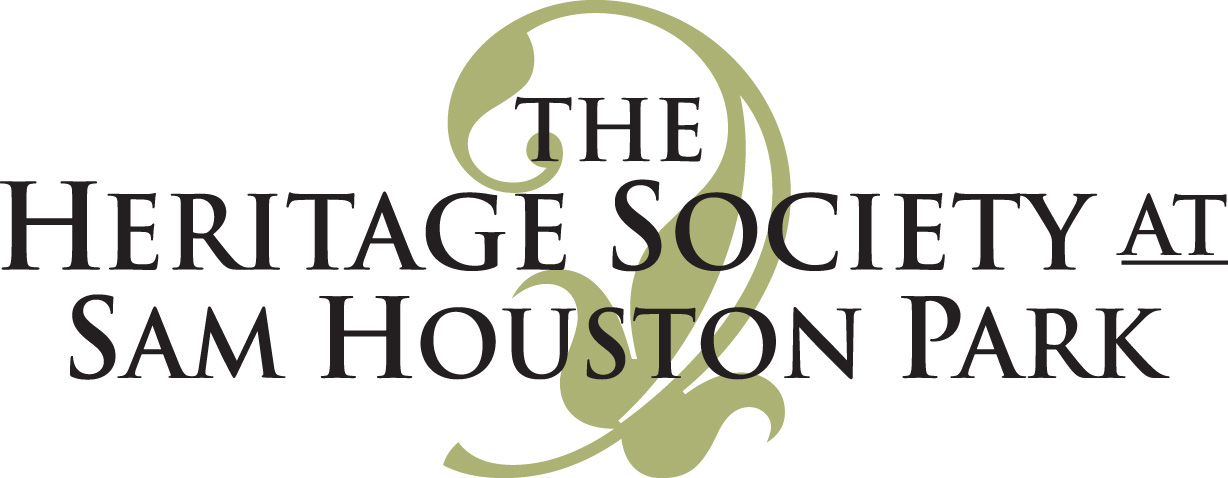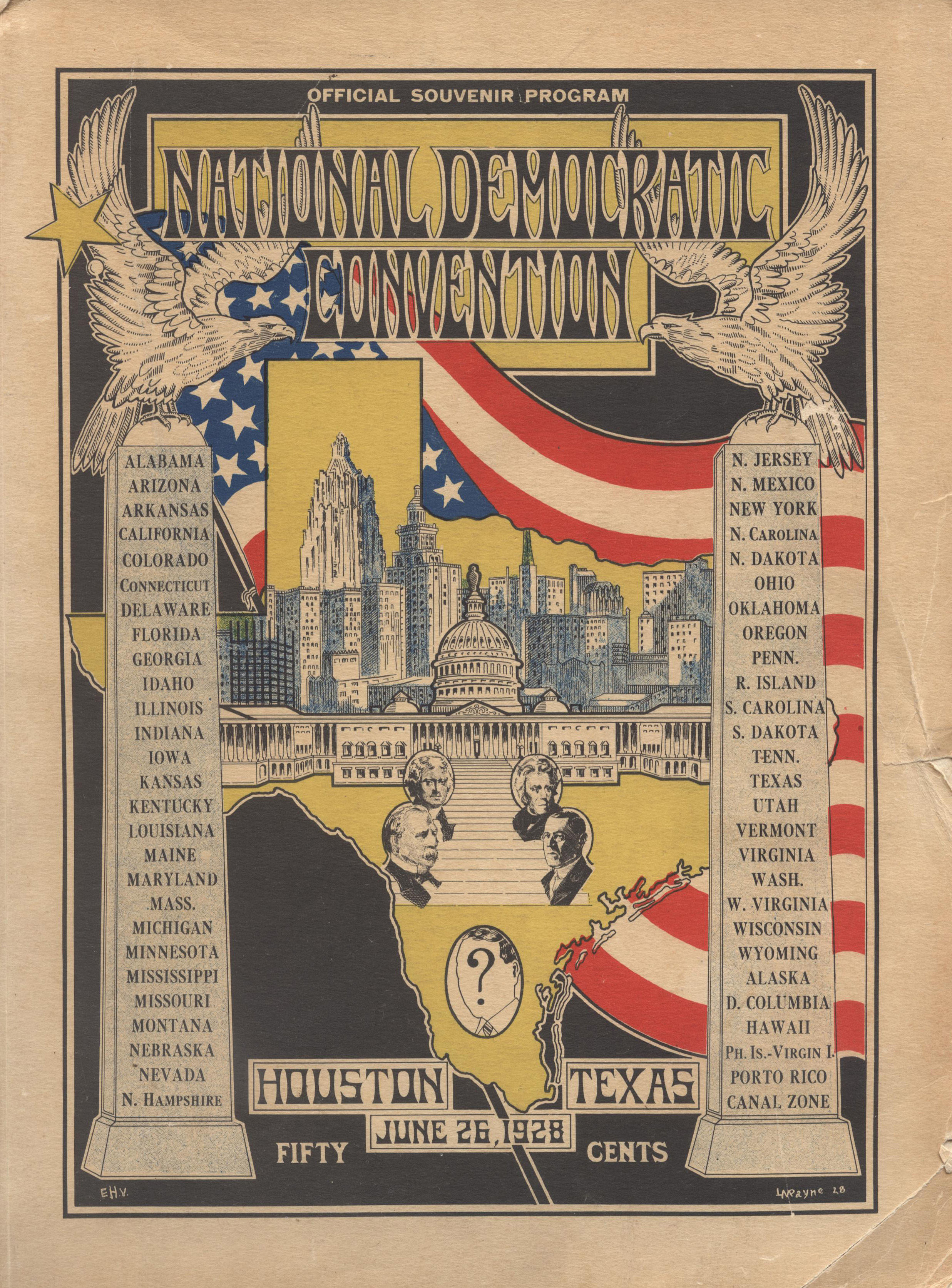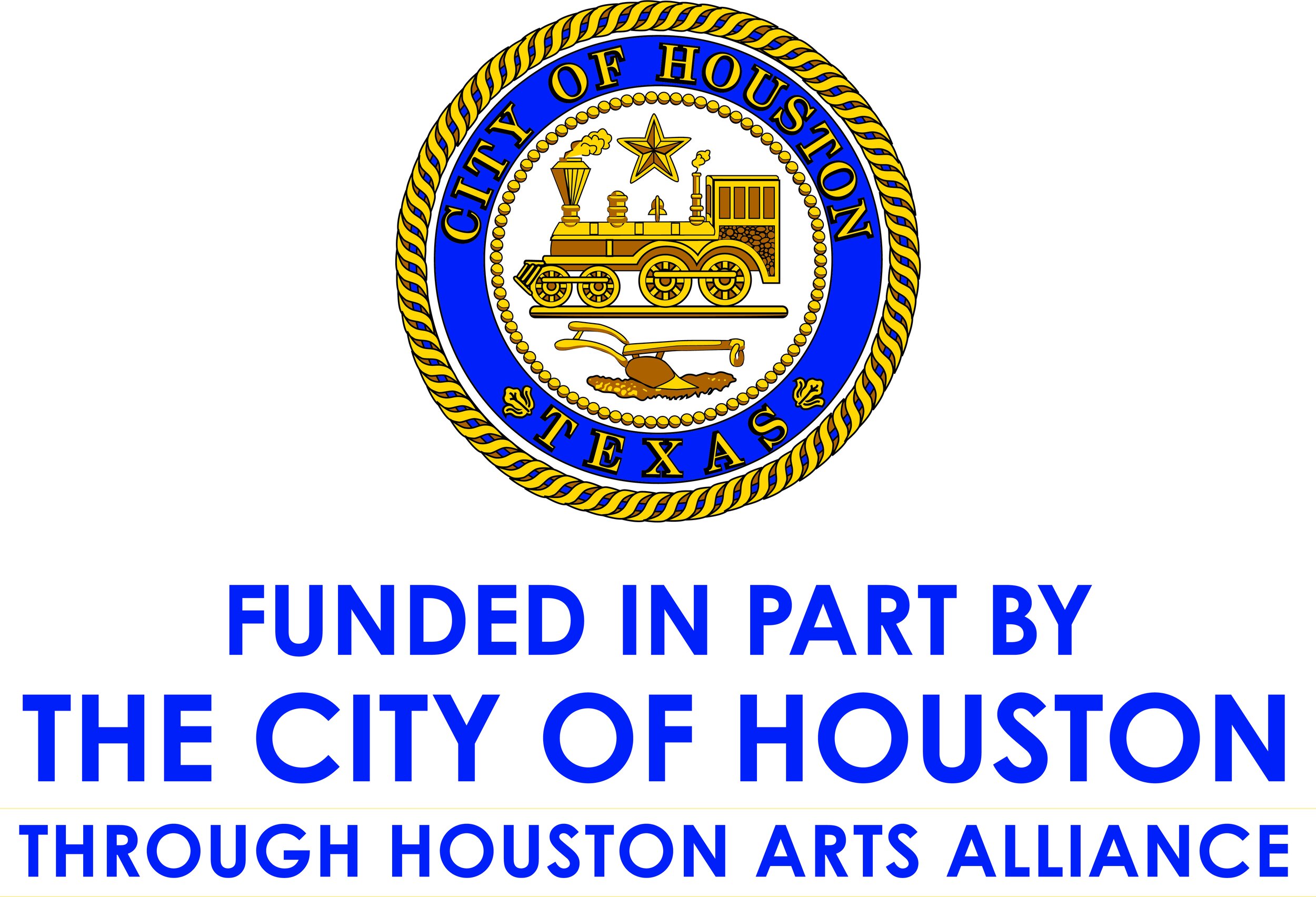Houston Wins 1928 Democratic National Convention!
In 1928, the City of Houston was chosen to be the site of the Democratic National Convention, beating out San Francisco, Detroit and Cleveland. Much of the reason the party choose Houston was due to the efforts of local businessman, Jesse H. Jones, who was Director of Finance for the Democratic National Committee. As described in the Official Souvenir Program for the convention, Jones “made a sincere and downright offer to his party to entertain them in his home, in true Southern style. The party realized the sincerity of the invitation, the benefits it would reap, so it accepted.”
Convention Button, Heritage Society Permanent Collection
Yet Houston was an unlikely place to hold a national convention. Not only would the gathering take place in the heat of summer, but the city had no convention facility. It was Jones who pushed forward the hurried construction of the 20,000-seat Sam Houston Hall. The structure was completed in just 64 days at the cost of $200,000. Plans for the convention hall were drawn by architect Alfred C. Finn. Located at 801 Bagby Street, the hall was 379 feet long and 318 feet wide and was 33% larger than Madison Square Garden where the convention had been held in 1924.
The Mayor of Houston in 1928 was Oscar Holcombe and the city’s population was approximately 275,000. Ranked the third largest city in Texas at the time, Houston spanned 70 square miles, had 60,000 telephones and 234 miles of pavement. The city was touted by the Democrats as having the “proud distinction of being the first city of the South since the Civil War to entertain a Democratic National Convention.”
Official Souvenir Program of the 1928 Democratic National Convention, Heritage Society Permanent Collection
From June 26th through the 29th, all of Houston was caught up in the excitement of the convention. Buildings, stores, shop windows and automobiles and were adorned with banners, streamers, bunting and flags. The Rice Hotel, owned by Jesse Jones, served as convention headquarters. Will Rogers, humorist and film star, was flown into Houston by his friend Wiley Post to write a daily “telegram” for the Houston Chronicle. It was so hot during the convention that Rogers remarked, “the Rice Hotel is so packed I have reached and mopped three other perspiring brows before I could find my own.”
Major issues addressed at the convention included the enforcement of Prohibition and the plight of America’s farmers. Jesse Jones was briefly considered for the Presidential nomination, having received the Texas delegation’s votes. Yet, as predicted, it was New York Governor Alfred E. Smith who was nominated for President on the first ballot. An Anti-Prohibitionist, Smith was the first Roman Catholic to be nominated for the U.S. Presidency by a major political party. Senate Majority Leader Joseph T. Robinson, a Southerner and supporter of Prohibition, received the nomination for Vice President.
Charismatic speaker Franklin Delano Roosevelt gave the speech at the convention nominating Al Smith. He ended his speech with, “We offer one who has the will to win, who not only deserves success but commands it. Victory is his habit – the Happy Warrior, Alfred E. Smith.” Roosevelt had nominated Al Smith four years earlier, but the party compromised on John W. Davis instead. Although the Democratic Convention took place in Houston, Smith did not carry Texas in the general election. Republican candidate Herbert Hoover won the 1928 Presidential election by a wide margin.
Tickets to the Convention, Heritage Society Permanent Collection
The Democrats would have to wait four more years to see their candidate, Franklin Roosevelt, elected to the Presidency. Houston would not host another convention for 64 years. In 1992, the city hosted the Republican National Convention in the Astrodome and nominated incumbent President George H.W. Bush.











